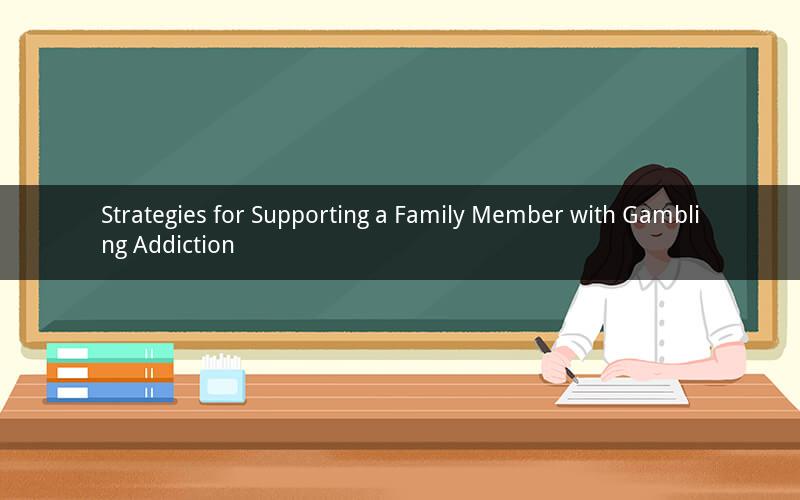
Gambling addiction is a complex issue that can have devastating consequences on both the individual and their loved ones. If you suspect a family member may be struggling with gambling addiction, it is crucial to understand the problem and take action. This article explores various strategies for supporting a family member with gambling addiction, providing insight into the challenges faced and practical steps that can be taken to help them overcome this difficult situation.
Understanding the Problem
Gambling addiction, also known as problem gambling, is a behavioral disorder characterized by an inability to control or stop gambling, despite negative consequences. It is a progressive disease that can lead to financial, emotional, and psychological problems. Recognizing the signs of gambling addiction is the first step in providing support to a loved one.
Signs of Gambling Addiction
1. Preoccupation with gambling: The individual constantly thinks about gambling, planning their next bet, or reliving past gambling experiences.
2. Inability to control gambling: Despite attempts to stop or limit gambling, the individual continues to engage in this behavior.
3. Lying about gambling: The person may lie about how much they gamble, how much money they have spent, or how often they gamble.
4. Borrowing money to gamble: The individual may borrow money from friends, family, or even illegal sources to fund their gambling habits.
5. Neglecting responsibilities: Work, family, and social life may suffer as a result of gambling addiction.
Strategies for Supporting a Family Member
1. Educate yourself: Familiarize yourself with the basics of gambling addiction, including its causes, symptoms, and treatment options. This will help you understand the challenges your loved one is facing and offer appropriate support.
2. Encourage them to seek professional help: Encourage your family member to consult with a mental health professional or a counselor specializing in gambling addiction. Therapy can provide them with the tools and strategies needed to overcome their addiction.
3. Be supportive, not enabling: While it is essential to offer your support, it is equally important to avoid enabling their behavior. This means not lending them money, covering up their debts, or making excuses for them.
4. Develop a support network: Encourage your loved one to join a support group for individuals struggling with gambling addiction. This can provide them with a sense of community and understanding from others who have faced similar challenges.
5. Set boundaries: Establish clear boundaries regarding your involvement in their recovery process. This may include setting limits on visits, phone calls, or other forms of communication.
6. Encourage healthy habits: Encourage your family member to adopt healthy habits, such as exercise, hobbies, and social activities. This can help distract them from the urge to gamble and provide a sense of normalcy in their lives.
7. Provide emotional support: Be there for your loved one during both good and bad times. Offer a listening ear and reassure them that they are not alone in this journey.
8. Be patient: Recovery from gambling addiction is a long and challenging process. Be patient with your loved one as they work through their struggles.
9. Monitor their progress: Keep an eye on their progress and offer your support when needed. Celebrate their successes and be there for them when setbacks occur.
10. Seek your own support: It is essential to take care of yourself while supporting a loved one with gambling addiction. Consider seeking support from a counselor or support group for yourself.
Frequently Asked Questions
1. How can I tell if my family member's gambling is a problem?
If your family member is lying about their gambling, spending excessive amounts of time and money on gambling, or neglecting their responsibilities, these may be signs of a gambling addiction.
2. Can I force my family member to seek help for their addiction?
No, you cannot force someone to seek help for their addiction. However, you can encourage them to seek professional help and offer your support throughout their recovery process.
3. What if my family member relapses?
Relapses are common in the recovery process. Encourage your loved one to learn from their mistakes and continue seeking support from their therapist, support group, or other resources.
4. How can I help my family member pay off their gambling debts?
It is important not to cover up or pay off your family member's gambling debts. Instead, encourage them to seek professional help and learn how to manage their finances responsibly.
5. Will my family member's addiction ever go away?
Recovery from gambling addiction is a lifelong process. While some individuals may experience periods of remission, it is crucial to continue providing support and monitoring their progress throughout their lives.